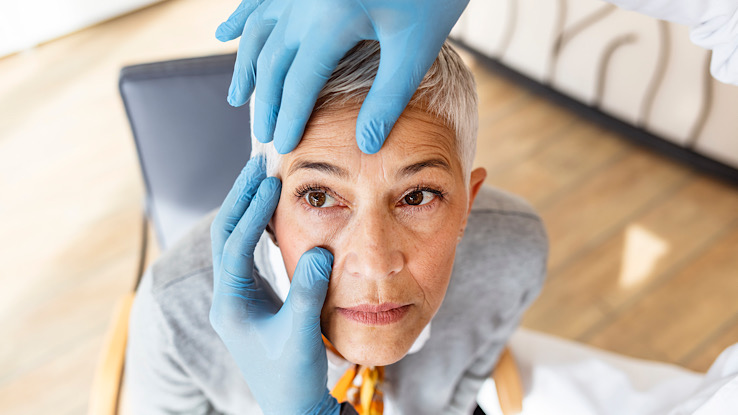
Glaucoma is a group of eye conditions usually related to high pressure inside one or both eyes. The increased eye pressure can damage the optic nerve (the nerve that connects the eye to the brain), and this can cause permanent vision loss.
Although glaucoma can happen at any age, it’s more common in older adults. In the United States, about 3 million people have glaucoma — and it’s the second most common cause of blindness in the world.
Glaucoma often has no early warning signs, so the best way to find it early is to get regular eye exams. If you notice glaucoma symptoms, it’s important to see your doctor right away. Learn about the signs of glaucoma so you can protect your sight.
Glaucoma Symptoms: Open-Angle Glaucoma
The most common type of glaucoma in the United States is open-angle glaucoma. People with this type usually don’t notice any symptoms until they start losing their vision — that’s why it’s sometimes called a “silent thief of sight.”
Even though this type has no early warning signs, you can look out for these later signs of open-angle glaucoma:
- Blind patches in your central or side vision (usually in both eyes)
- Tunnel vision — when you can only see directly in front of you
- Trouble seeing at night or in low light
Glaucoma Symptoms: Angle-Closure Glaucoma
Acute angle-closure glaucoma (also known as narrow-angle glaucoma) happens when your eye pressure builds up suddenly. This is a medical emergency because it can cause blindness very quickly without treatment. Get medical help right away if you notice these signs:
- Eye pain or redness
- Blurred vision
- Nausea or vomiting
- Severe headache
- Seeing halos around lights
Get Regular Eye Exams to Check for Glaucoma
It’s a good idea to learn about the symptoms of glaucoma. But since you may not notice any glaucoma symptoms until it causes vision loss, it’s also important to get regular eye exams.
Your eye doctor can check your eye pressure and look for early signs of glaucoma in an eye exam. If your doctor finds signs of glaucoma, they can recommend treatments to lower your eye pressure and protect your vision.
Resource Links:
- “Glaucoma” via Mayo Clinic
- “Types of Glaucoma” via National Eye Institute
- “10 Things You Should Know About Glaucoma” via National Eye Institute
- “Symptoms of Open-Angle Glaucoma” via Glaucoma Research Foundation
- “Don’t Let Glaucoma Steal Your Sight” via Centers for Disease Control and Prevention





